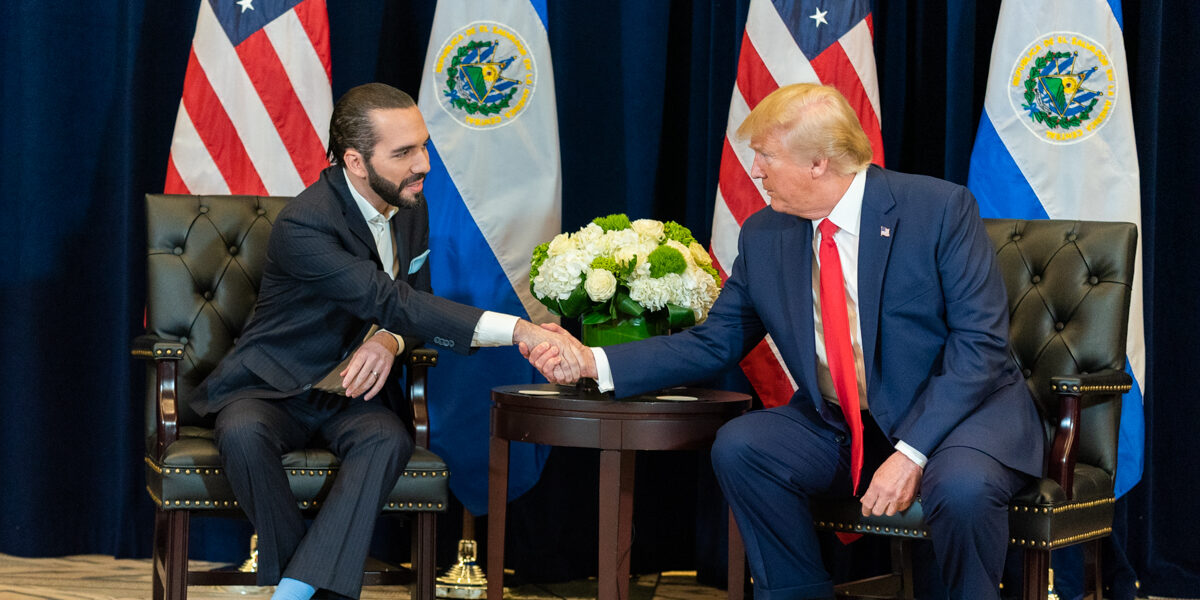Democracy crumbles, as Hemingway said about bankruptcy, in two ways: first slowly, then quickly. Or in this case, perhaps a bit of each, simultaneously.
Costa Rica, long a democratic beacon for Latin America — it doesn’t even have an army — now has an authoritarian president in the Trump image: social media-based conspiracism with evangelical links. In turn his model is nearby El Salvador, whose president jailed 70,000 “gang members” under emergency rule, plans to run again, unconstitutionally, and polls best among all national leaders. In west Africa, Niger has become the fourth state to undergo a military coup. This week the military in Gabon cancelled election results and took charge.
Political violence marks these cases, as it did the rise of fascist dictators in the inter-war years. Well before Trump was elected in 2016, he growled, Get them outta here, about protesters at his rallies. There are Canadian echoes in the F— Trudeau howls along with stuff hurled at him. Trudeau now doesn’t announce events in advance, or hold the quite democratic Q and As he used to.
What I find indicative about Donald Trump’s movement is that he’s never, to my knowledge, said a word in favour of democracy, even ritualistically. His watchword was, “And only I can fix it” — not, We the People. I was struck, in fact, when Pierre Poilievre said recently that millions of Canadians are “desperate for someone who gives them hope” and he’s “humbled by the fact that I am that person. I am the only one giving them hope.” Not exactly the same, but echoey.
Is it puzzling that centuries of ensconced democratic norms appear to disperse like the morning dew? I’d say it is, though less so if you recall that each person lives only one lifetime and the full weight of all previous eras is experienced by no one.
Our direct, most compelling experience is of our own time, even if the past weighs more or less on each of us. Studying or reading past history just isn’t as weighty as living our own chunk of it. Hannah Arendt marvelled at how each human being is a totally new beginning. She overstated, as was her wont, and she meant it hopefully, not glumly. But the point stands.
I, for instance, was filled with despair that Canada would not survive after the free trade side won the raucous 1988 election. But I also began to realize I’d underestimated the feat of Canadian survival through two centuries of U.S. assimiliative pressures. Our sense of connection to the past is opaque, at best.
As for: why the accelerated decline of democracy now? I’d say it’s to do with those trade deals and the neoliberal globalization they were part of. As a result, whole ways of life and means of livelihood were shattered in industrialized countries — though it took decades to become fully apparent, as it finally did in the crisis of 2008, and its aftermath, when the rich alone were bailed out.
That wave of carnage, as Trump called it, was led by counterfeit progressives like Bill Clinton and Barack Obama, though many more genuinely left figures like Bernie Sanders decried it. Then it was the right — Trump and others — who seized on the backlash to get elected and when they took power brought along their authoritarian, anti-democratic values. It’s an intricate nexus.
We may be living through the end days of what you could call fake or, more precisely, highly flawed and limited democracy. (It’s noteworthy how the term gets thrown around but is never defined.) Its future versions may look more like the ancient Greek or Iroquoian forms, which is an exciting prospect.
Labour Day may be a good time to reflect on these matters, since it’s always the working population, urban or rural, who are called on to rise up and sacrifice for the sake of democratic values, and who get shunted aside by their well-spoken betters, after the battle has been won. Some day, if our species survives, it’ll be different, right?
This column originally appeared in the Toronto Star.



